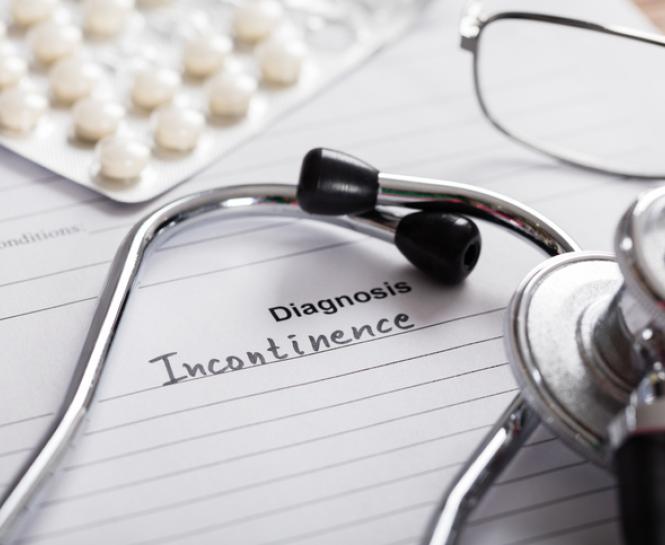"Urinary tract infections are common and highly treatable when caught early," said Aaron J. Woodall, MD, Catholic Health Urologist. “Talk to your primary care physician if you are showing symptoms so the infection does not spread."
Dr. Woodall explained that steps can be taken to reduce the likelihood of a UTI occurring. "However, if your UTIs are recurring, your doctor will recommend a urologist who can provide more specialized care and treatment,” he said.
What is a urinary tract infection?
A urinary tract infection (UTI) occurs when bacteria enter the urinary system. The urinary system includes the bladder, kidneys, the tubes that connect a kidney to the bladder and the tube through which urine exits the body. In most cases, a UTI occurs in the bladder or the urethra.
Who is at risk for a urinary tract infection?
"Women are at greater risk than men of developing a UTI and often experience more than one in their lifetime," said Dr. Woodall. "Because of this, women have specific risk factors for UTIs."
Those risk factors include:
- Anatomy. Women have a shorter urethra than men, which means less distance for bacteria to travel.
- Menopause. Estrogen declines cause changes in the urinary tract, increasing the risk for a UTI.
- Pregnancy. Changes in the urinary tract can be caused by being pregnant.
What are additional risk factors for a UTI?
URI risk factors also include:
- Sexually active (including a new sexual partner)
- Suppressed immune system from diseases like diabetes
- Kidney stones or an enlarged prostate that blocks the urinary tract
- Recent urinary surgery
- Use of a catheter to drain urine from the bladder
What are the symptoms of a UTI?
UTI symptoms may include:
- Burning sensation while urinating
- Cloudy urine
- Foul-smelling urine
- Lower pelvic pain
- Needing to urinate often
- Only being able to urinate small amounts of urine
- Strong urge to urinate that does not go away
- Urine that is red, pink or brown
When should I see a doctor for a UTI?
If you have symptoms related to a UTI, make an appointment with your primary care physician (PCP), who will diagnose and treat the URI before symptoms worsen. Call a doctor immediately if you have a fever, chills, nausea or vomiting.
How is a UTI diagnosed?
Your PCP will conduct a physical exam and review your symptoms. You will be asked for a urine sample, which will be sent to a lab. A urinalysis will show if a UTI is present. Your doctor may also request a urine culture to identify the bacteria causing the UTI.
“If you have recurrent UTIs, you should see a urologist for more advanced testing and diagnostics,” said Dr. Woodall. “Recurrent UTIs can indicate a structural problem in the urinary tract.”
Your urologist may order an ultrasound, CT scan or MRI. You may also need a cystoscopy that uses a scope to look inside the bladder.
How is a UTI treated?
“Home remedies like a heating pad and drinking plenty of fluids are helpful but should not replace professional diagnosis and treatment,” said Dr. Woodall.
He explained that your doctor will prescribe an antibiotic as an initial treatment. “For the antibiotics to work and treat the UTI, you need to take the antibiotics as directed and finish the entire course even if you feel better and symptoms subside,” he said.
Recurrent UTIs will require further treatment that may include:
- A longer course (six months or more) of antibiotic medication
- A low dose of antibiotic medicine after sex if the UTI is related to sex
- Vaginal estrogen therapy if you are a woman in menopause
Can I reduce my risk of a UTI risk?
You can take steps to reduce your risk of developing a UTI, including:
- Avoid scented feminine powders, sprays or douches
- Drink plenty of fluids, especially water
- Urinate after having sex
- For females, wipe from front to back after urinating and a bowel movement
Does cranberry juice help for UTIs?
Dr. Woodall explained that drinking cranberry juice or taking a cranberry supplement is a common remedy for UTIs. Cranberries have a substance that can prevent bacteria from adhering to the bladder's walls. No studies, however, have conclusively shown evidence supporting it as a helpful treatment.
“If you drink cranberry juice or take a cranberry supplement, be mindful of what you take,” he said.
Some juices contain high amounts of sugar that can worsen a UTI or interfere with certain medications like blood thinners. Also, a company selling cranberry supplements—not the Federal Drug Administration (FDA)—is responsible for product safety and accurate labeling.
“It is always best to talk to your doctor before treating your UTI on your own,” said Dr. Woodall.







